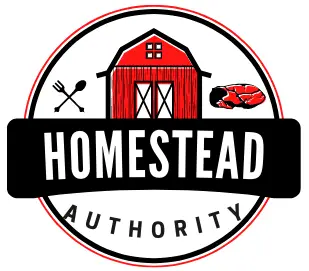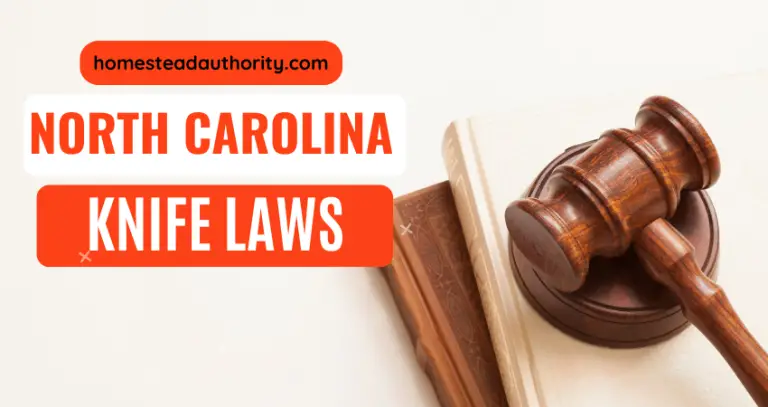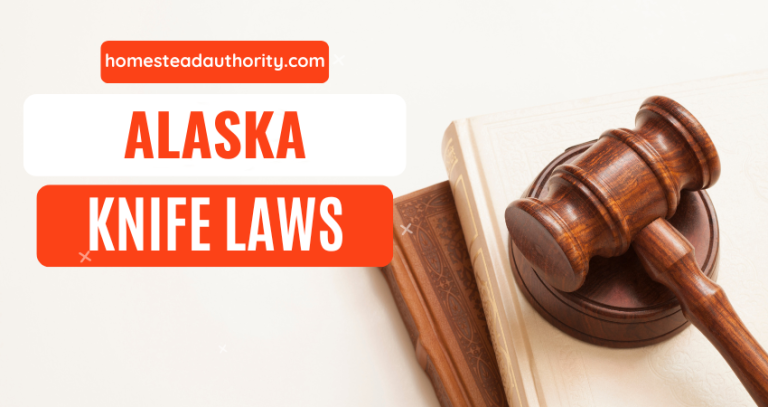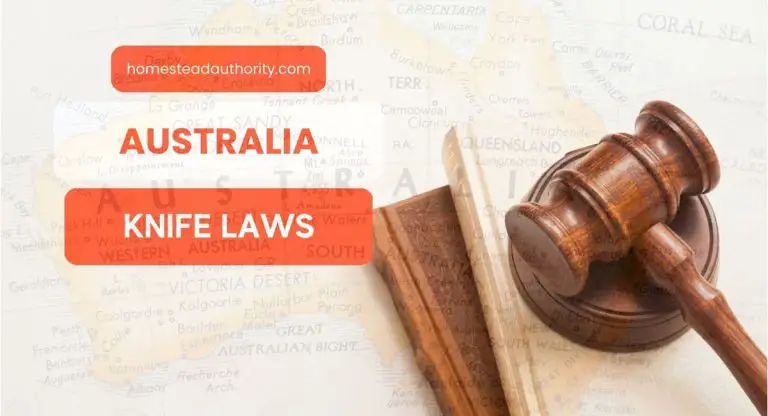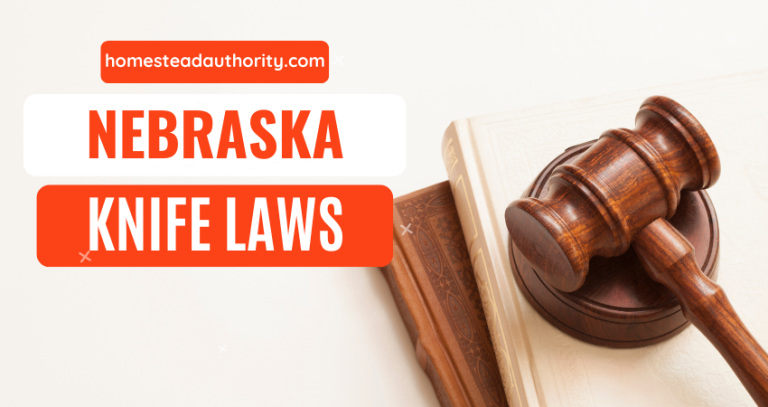West Virginia Knife Laws: Everything You Need To Know
West Virginia is a state where even ballistic knives are legal. While most states prohibit these dangerous knives for public safety, West Virginia doesn’t mind you carrying one, given you fit their age restriction.
The West Virginia knife laws are more concerned about the age of the person carrying the knife rather than its type. As a result, most knives are legal in the mountain state.
Nevertheless, the laws might be loose, but if not followed, one will not go into the misdemeanor category of a criminal.
Rather, a felony charge will be pressed upon him/her due to not following the regulations. You certainly don’t want to be the one getting charged and so here we are.
We will take a look at every single detail of the knife laws present in West Virginia so that you don’t get convicted. Let’s get started!
Highlights
If you just want to have a peek at the laws, then here they are:
- Anyone aged 21 or above can carry any knife
- Concealed carry is forbidden if the knife’s blade length is above 3.5 inches
- Any type of knives in schools, courts, and government buildings are forbidden
- Anyone under 21 is only allowed to carry a knife that has a blade length of fewer than 3.5 inches
- A felony charge will penalize with up to $5000 and 10 years of jail time
- A misdemeanor charge will be penalized with $1000 and 12 months of jail time
Illegal Knives In West Virginia
Knife laws in West Virginia will not stop you from carrying any type of knife. It doesn’t matter whether it’s a ballistic knife or a butcher one.
Thus, it can be said that the state law will not go against you if you carry one.
However, there is a threshold that you must reach in order to be eligible to do so. One must be aged 21 or over in order to carry a knife in West Virginia.
As per WV Code § 61-7-8, this only applies to deadly weapons.
Some examples of deadly weapons would be:
- Ballistic Knives
- Dirks
- Daggers
- Switchblade Knives
- Bowie knife
On the other hand, if you are above 21 then you wouldn’t need to check the list of non-threatening knives. You just buy one and take it out in the hood without a worry.
Legal Knives In West Virginia
Similar to the illegal knives section, there is nothing much to talk about in the legal knives. If you are 21 then you may have access to all the knives out there.
However, teenagers are allowed to carry a few types of knives that are nondeadly and don’t require any licensing or anything as they are just simple knives.
Examples of legal knives even for teens would be:
- Pocket knives
- Hunting knives
- Fishing knives
- Folding knives
- Butterfly knives
- Jack Knives
Although, it wouldn’t matter what age someone is if brandishing a knife is involved.
The § 61-7-11 West Virginia code strictly prohibits brandishing a knife in a threatening manner that would alarm someone.
Legal Knife Size
If you are wondering what size knife is legal to carry in West Virginia, you are in the right section. Surprisingly, age is also a factor here as well, even though this state prioritizes age over everything.
Nevertheless, for anything to be a deadly weapon, the size of the blade from the tip to the bolster has to be less than 3.5 inches.
As per the rules, anyone under 21 cannot carry a knife that is considered a deadly weapon.
Definition Of Deadly Weapons
Before we go any further, you must be aware of the definition of deadly weapons in the mountain state. According to §61-7-2, deadly weapons mean;

Concealed Carry In West Virginia
Now that you can separate deadly weapons from non-deadly ones according to West Virginia laws let’s see what’s their say on concealed carry.
Remember the legal knife length? Up to a 3.5-inch blade is considered a non-deadly weapon here.
According to the WV Code §61–7–7, no deadly weapon can be concealed carry despite the carrier’s age. It’s strictly prohibited that any knife with a blade size longer than 3.5 inches shall not be carried in a concealed manner.
Undoubtedly, it is seen as a dangerous weapon that you are trying to hide and don’t have a good intention with.
However, if you have a permit for carrying firearms, then there’s no stopping you. You can do both open and concealed carry without any fear of getting charged.
Restricted Areas
Even though the rules and regulations are quite chilled about knives, it surely isn’t when it comes to certain places.
§61-7-11a states you cannot carry any type of knives in any educational facility, courthouse, and government building.
Moreover, your age or permit wouldn’t be taken into count here.

Well does that permits us to carry a knife in car in West Virginia that is owned by a school? No, it does not.
Anything linked with an educational facility must also follow its rules and regulations.
Punishment For Breaking Knife Laws
Anyone above 21 they are only to be penalized for one of the two things.
- First, if that someone goes to a school with a knife.
- Second, if he/she does conceal carry of a deadly knife instead of an open carry.
Doing the first one is the highest level of punishment you can get for carrying a knife. You will be categorized as a felony where it involves up to 10 years of jail time and a $5000 fine.
Similarly, concealing a deadly knife will lead to only a fine of up to $1000 and a jail time of 12 months at max.
On the other hand, if anyone underaged is caught with a deadly weapon, then he/she is treated as a misdemeanor.
That means the same as the conceal carry punishment. A maximum of 12 months in jail and a $1000 fine.
Conclusion
To summarize, there’s not much to be worried about when it comes to West Virginia knife laws if you are 21 or above. They are undoubtedly lenient about knives with adults.
However, make sure you don’t do conceal carry with a knife that has a blade length of above 3.5 inches.
On the other hand, a minor is only allowed to carry a knife that is non-deadly. That means a knife blade of fewer than 3.5 inches.
No one’s going to stop a minor if they have a pocket knife or a hunting one. Yet, the fines and jail time are something to keep in mind as they aren’t sweet.
